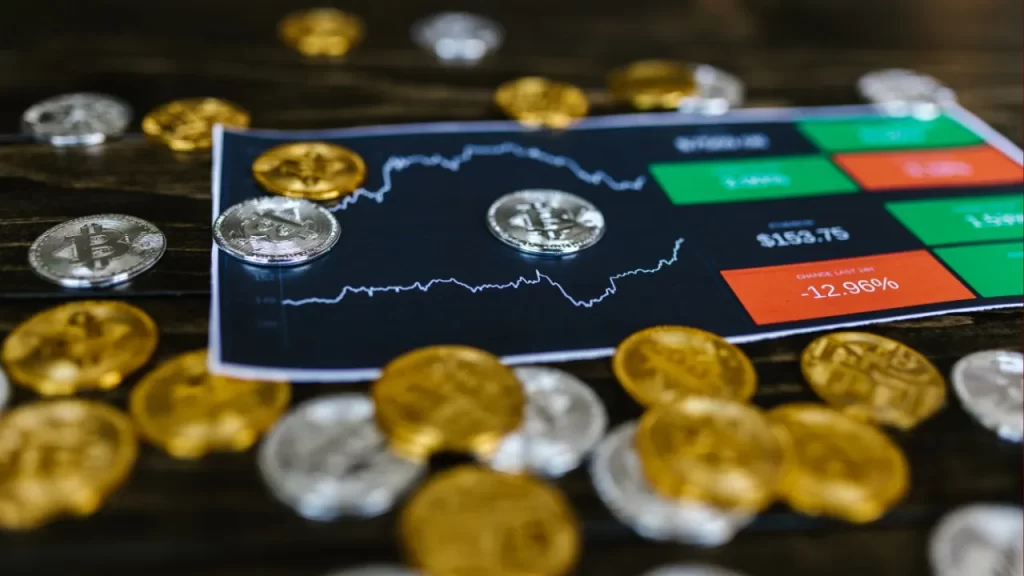If you’re just starting your trading journey in South Africa, you’ve probably come across two of the most popular markets: Forex (Foreign Exchange) and Cryptocurrency.
Both are known for their potential profits and high volatility, but they differ significantly in how they work.
Let’s help you decide which one suits your goals, lifestyle, and risk tolerance.
What Is Forex Trading?
Forex, short for foreign exchange, is the global marketplace where currencies are traded in pairs. For example:
- USD/ZAR (US Dollar vs South African Rand)
- EUR/USD (Euro vs US Dollar)
- GBP/JPY (British Pound vs Japanese Yen)
This market is the largest in the world, with over $6 trillion traded daily. It operates 24 hours a day, from Monday to Friday, across various financial centers worldwide.
It’s a highly liquid and well-regulated environment, especially under South Africa’s FSCA (Financial Sector Conduct Authority).
What Is Crypto Trading?
Crypto trading involves buying and selling digital assets such as:
- Bitcoin (BTC)
- Ethereum (ETH)
- Ripple (XRP)
- Solana (SOL)
Unlike forex, the crypto market never sleeps—it’s open 24/7. It’s decentralized, meaning it isn’t controlled by governments or financial institutions.
While this opens up exciting opportunities, it also means regulation is less consistent, and the market can be riskier.
Comparing Forex and Crypto for Beginners
The two markets offer very different trading experiences:
- Market Hours: Forex operates five days a week, while crypto is available every day, all day. This makes crypto more accessible for those who want to trade outside traditional hours.
- Volatility: Forex tends to be more stable with predictable movements, while crypto prices can change dramatically in minutes, creating both high risk and high reward.
- Liquidity: Forex markets have extremely high liquidity, especially with major currency pairs. Crypto liquidity varies depending on the coin, with smaller coins (altcoins) often experiencing larger price gaps.
- Leverage & Regulation: Forex brokers generally offer regulated and accessible leverage. Crypto leverage, on the other hand, is often more limited due to its high-risk nature and looser regulation.
- Risk Level: Forex is considered moderately risky, especially if you manage leverage properly. Crypto carries a higher risk, driven by volatility, hacks, and market speculation.
- Trading Costs: Forex typically offers tight spreads and lower fees. Crypto trading can involve higher costs, including network fees, slippage, and platform charges.
Pros and Cons of Each Market
Forex Trading Pros:
- Highly liquid and cost-effective
- Predictable price movements
- Easier to analyze using news and economic indicators
- Regulated by authorities like the FSCA in South Africa
Forex Cons:
- Can be overwhelming for complete beginners
- Requires understanding of global economic news
Crypto Trading Pros:
- Always open for trading
- High potential returns in a short time
- Opportunity to invest in innovative technologies like DeFi and NFTs
Crypto Cons:
- Prone to extreme volatility
- Less regulated, exposing traders to scams or hacking risks
- Harder to evaluate based on traditional analysis
Which Market Is Better for South African Beginners?
There’s no right or wrong choice—it depends on your personal preferences and risk appetite.
Choose Forex if you prefer a more stable, regulated environment and want to build your trading skills using tried-and-tested strategies like trend-following or scalping.
Forex may also suit you if you’re more comfortable with technical and fundamental analysis.
Choose Crypto if you’re tech-savvy, comfortable with risk, and intrigued by the world of blockchain.
Crypto can offer explosive growth opportunities, but it also demands strong emotional control and the ability to handle big price swings.
Beginner Tips for Both Markets
No matter which path you choose, these tips will help you start strong:
- Use a demo account to practice before using real money.
- Stick with FSCA-regulated brokers or platforms that cater to South African traders.
- Start with a small investment and avoid overleveraging.
- Always set stop-loss orders to manage your risk.
- Stay informed—follow global economic updates for forex or industry news for crypto.
Final Thoughts
Forex and crypto both present exciting opportunities, but they cater to different types of traders. Take the time to understand each market, experiment with a demo account, and choose the one that aligns best with your goals and lifestyle.
Remember, no matter what you trade, continuous learning and smart risk management are the keys to long-term success.For more beginner-friendly trading insights, broker comparisons, and expert guides, visit Solis Markets Hub—your go-to resource for trading forex, crypto, and CFDs in South Africa.






